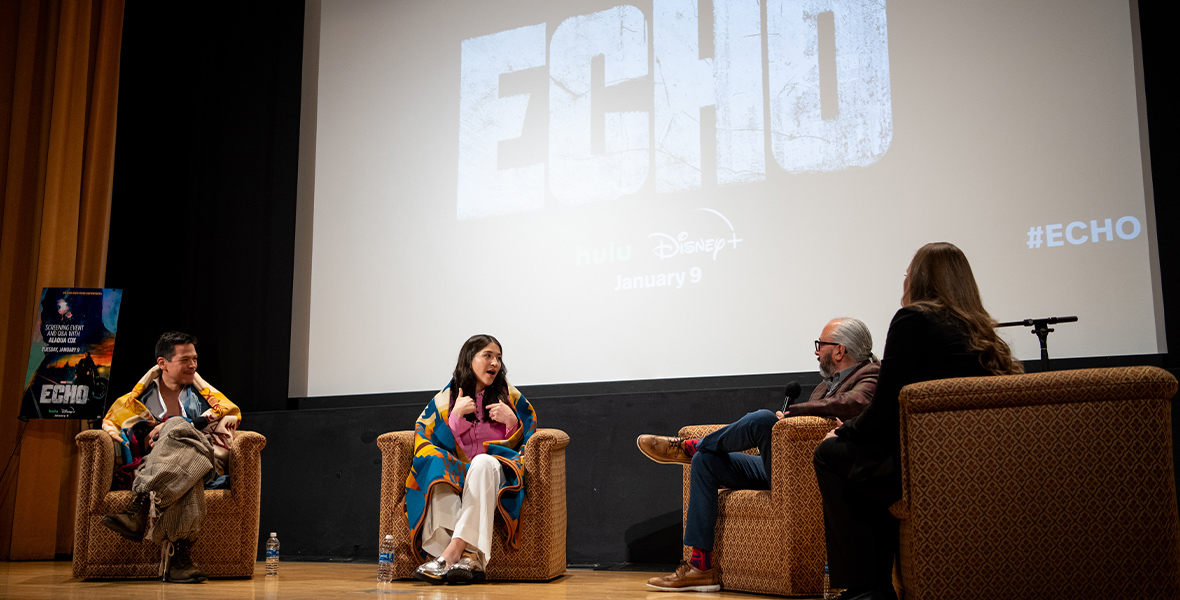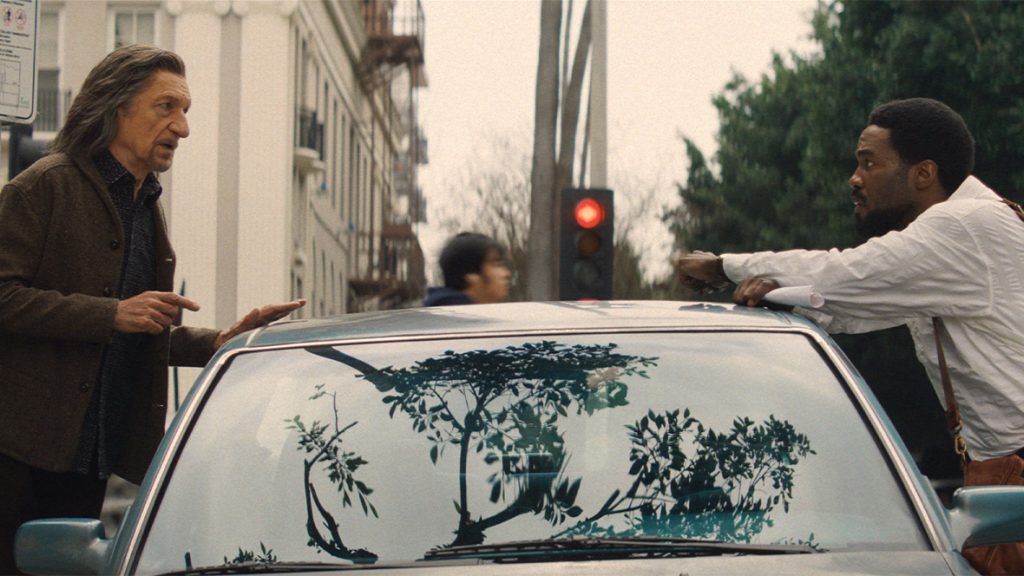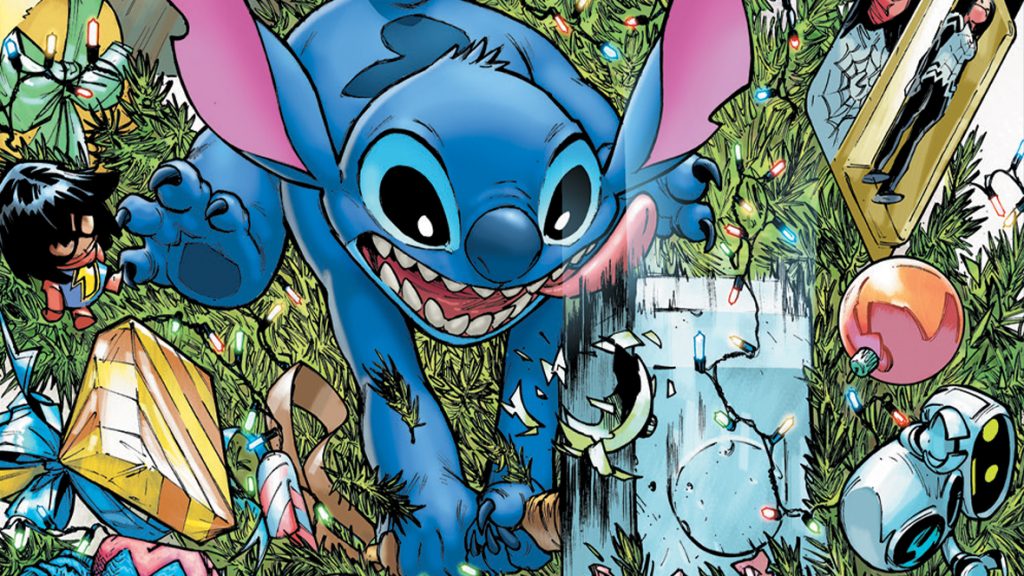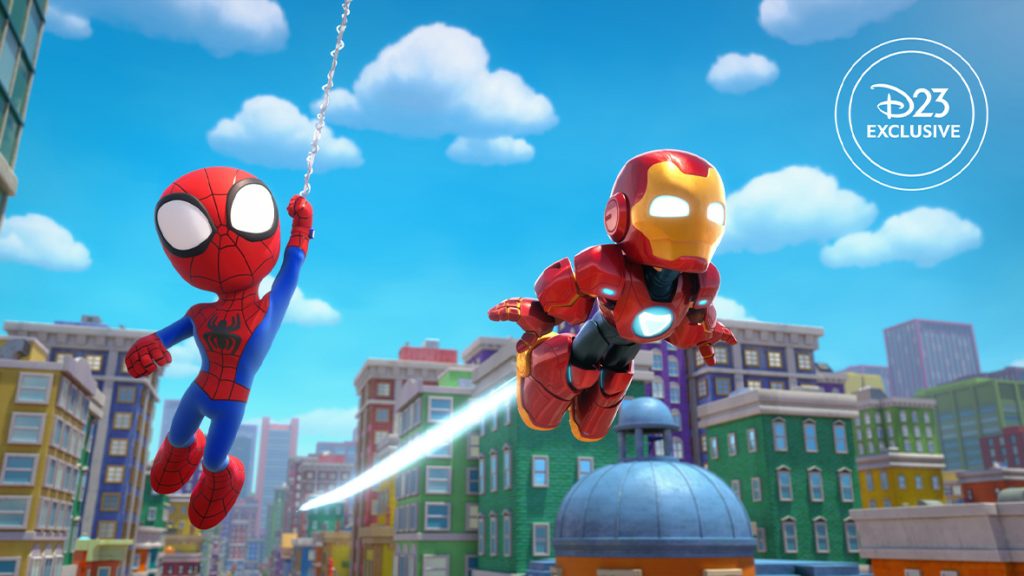By Alison Stateman
Echo lead Alaqua Cox (Maya Lopez) and co-star Chaske Spencer (Henry) celebrated the premiere of their Marvel Studios series on Tuesday, January 9, by participating in a lively discussion at the Autry Museum of the American West in Los Angeles.
The panel, moderated by Joe Horse Capture, VP of Native Collections and Ahmanson Curator at the museum, followed a screening of the first two episodes and the honorary bestowment of tribal blankets on both actors.
The series, currently streaming on Disney+ and Hulu, follows the introduction of Maya in Marvel Studios’ series Hawkeye (2021). Echo marks the first time Maya’s story has been told from an Indigenous perspective, with Indigenous writers and directors, and played by an Indigenous woman.
In Echo, after exacting her revenge on Kingpin aka Wilson Fisk (Vincent D’Onofrio), Maya is pursued by Fisk’s criminal enterprise. When the journey brings her home, she must confront her own family and legacy. The gritty, five-episode series—the first produced under the Marvel Spotlight banner—is a self-contained story that follows Maya’s pursuit of power and revenge. But the heart of the action-packed series is a burgeoning antihero with roots in the Choctaw Nation of Oklahoma.
Cox, who had never acted before her stint on Hawkeye, drew upon some of the commonalities she shared with Maya to prepare. (Cox is Menominee, and, like Maya, is deaf and an amputee.)
“I know she had a lot of childhood trauma growing up because of how she was raised by Kingpin—the horrible influence on her and the life of crime,” Cox said, referring to the Marvel villain, through an ASL interpreter. “And for me, I personally have my own childhood traumas, because I have gone through a lot of surgeries in my life because of my leg. So, we have similar childhood traumas, but in different ways, of course. I had a very loving and supportive family when, unfortunately, Maya did not have that luxury. I was able to use my trauma and her trauma and apply it to the character and bring her to life.”
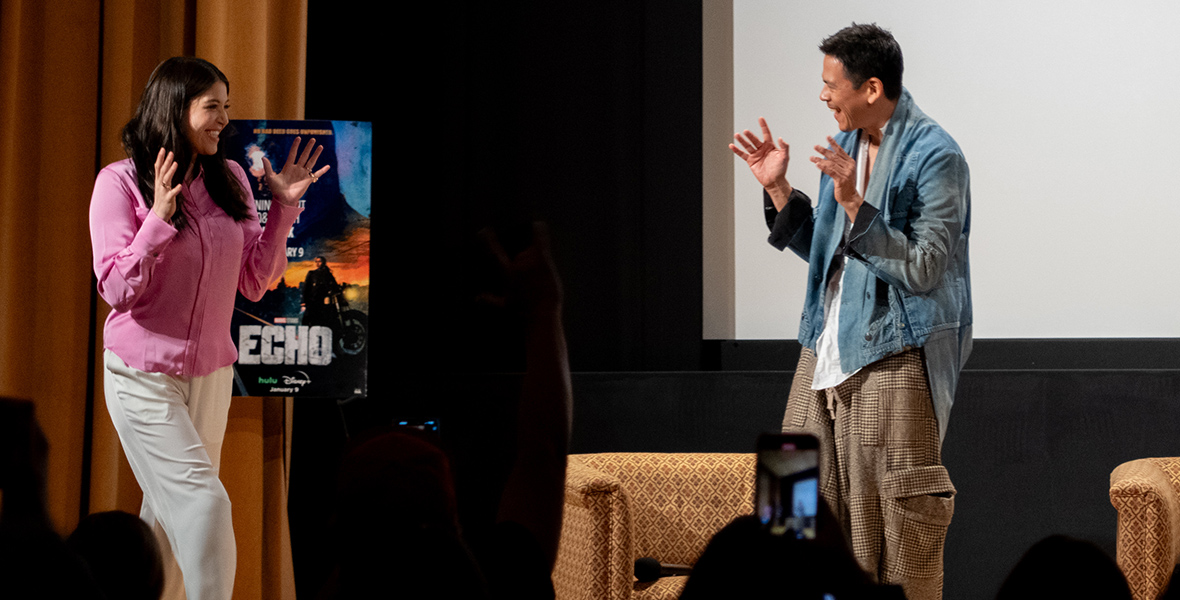
Working with a mostly Indigenous cast and crew—including Navajo filmmaker and director Sydney Freeland (Reservation Dogs)—also provided both Cox and Spencer, a Lakota Sioux, with an invaluable sense of comfort.
Cox said, “When I went to Georgia [where the series was filmed], I did not know anybody. And then when I got on set, it was full of Indigenous people. I felt I was home and also like our ancestors are just so proud of us—because this is the first Marvel Indigenous [project], and it just felt so amazing to be a part of that.”
Spencer too was “grateful to be part of the journey because it’s not just me. There are several people behind me that have paved the way,” he said, citing celebrated Native American actors, including Graham Greene (1883), who plays Skully, Maya’s grandfather, in the Marvel series.
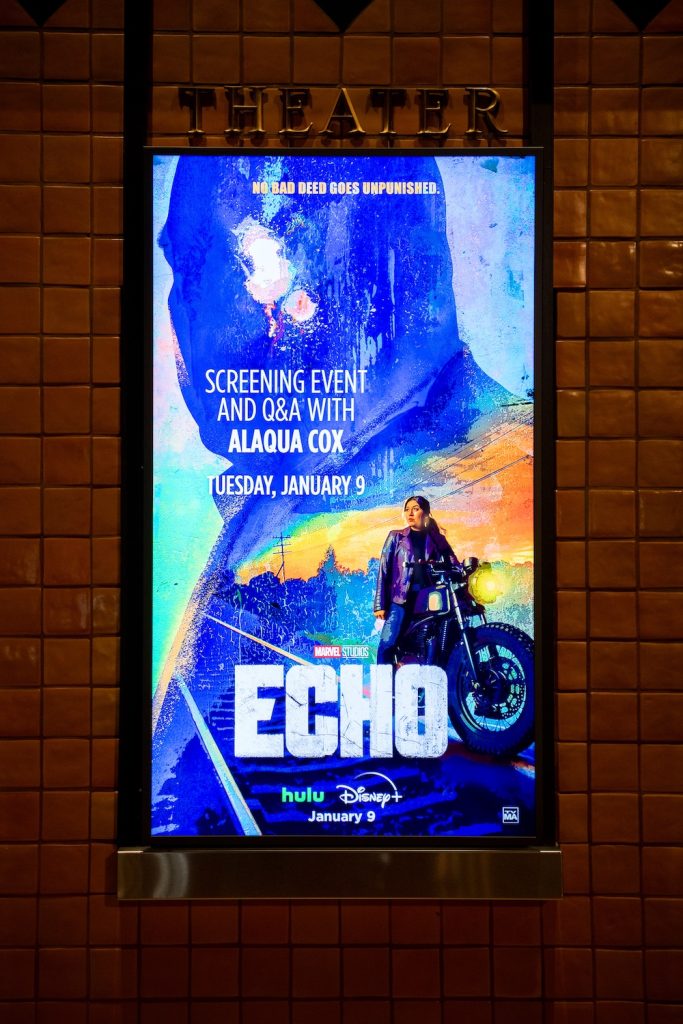
One of the most challenging parts of playing Maya, Cox said, were her scenes with Kingpin. “There’s a lot of emotion involved and he’s a very intense actor, so all that emotion became really complicated,” she shared. “Also, when Kingpin is talking to me without using sign language, I didn’t know when he was done saying his lines.”
The solution? “We tried using a vibration device that we called a buzzer. We put it in my shirt and the interpreter would have control of it. So when he was done with his lines, the interpreter would hit the buzzer and that would let me know when to say my line,” Cox shared, which drew laughs from the audience. “But it became distracting at times because I was trying to ignore the buzzer while we were doing the scenes. The most challenging part was ignoring the buzzer while keeping the emotional parts going.”
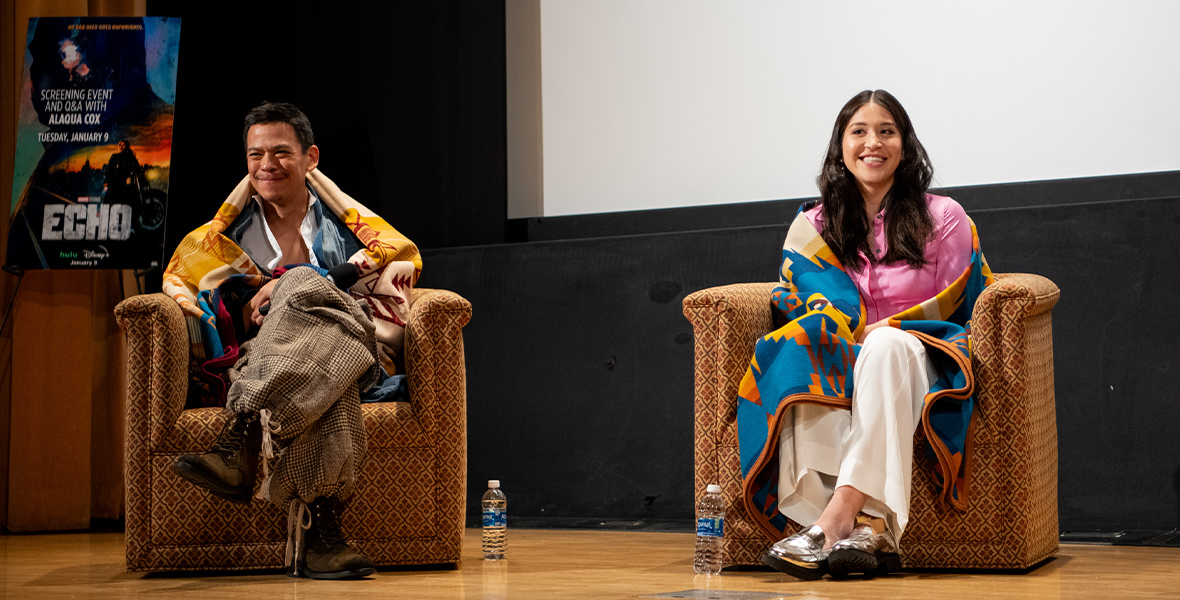
The physicality of the role, however, was one of Cox’s favorite parts about playing Maya. She trained five days a week for around two hours each day before filming began, which she said helped her become the character. “I love doing a lot of physical activity. I grew up playing sports,” the actress shared. “The best part about the training [for the role] was that my personal trainer was deaf. Marvel was able to provide me with a one-on-one access to a personal trainer where I could use my own language. So, the process was much faster. Marvel listened. I wanted a deaf personal trainer and they got me one.
“It feels very inspiring to be part of the MCU,” she added with a smile. “I still can’t believe it myself. I need to pinch myself every once in a while.”


